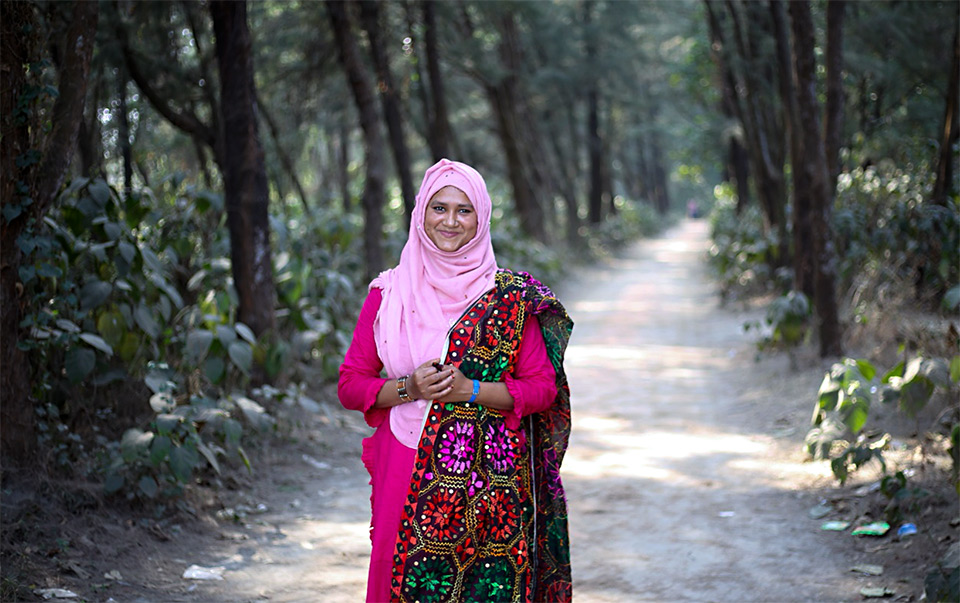From Where I Stand: Working to Build Peace During the Pandemic
Umme Kulsum is the President of Women Peace Café (WPC) at Begum Rokeya University, Rangpur (BRUR) in Bangladesh. During the COVID 19 pandemic, she has been using the skills and network developed through the WPC to respond to the impacts caused by COVID19 in her community.Date:

COVID19 has completely changed my life. After the university closed, all academic activities were suspended, and I was forced to return home. I live in a remote village in Bogura district and aside from worrying about my studies and the health risks posed by COVID19, I am also suffering from poor connectivity issues. However, I am trying to do my part during the crisis.
As President of Women Peace Café (WPC) of Begum Rokeya University, Rangpur (BRUR), I must engage online with other WPC members to continue our work even during the crisis. The WPC members are constantly engaging on the WPC Facebook page to raise awareness on COVID19 and to promote messages of peace and gender equality. I posted a video of my family during lockdown, which shows how me, and my brothers are sharing the household workload.
In my region, I think women are the hardest hit by this pandemic. Many women who worked in Ready-Made Garments factories or as maids have now lost their jobs. I am currently brainstorming to see how I can provide women with skills training to help them who became unemployed.
I also personally know a mother who is worried about her upcoming c-section as the hospital is not responding to her inquires. I have heard other stories from women trying to access healthcare and getting denied treatment or not receiving adequate care. This makes me think accessing healthcare has become more of a challenge due to the pandemic.
People in my village are saying that women are to blame for the pandemic, that the coronavirus is God’s punishment. They argue that God’s wrath is because women are working outside their homes and not dressing properly. I try to make people understand that these misogynist ideas and superstitions are wrong.
During the pandemic, I have developed several initiatives to help the most vulnerable women and children in my community. One example is a handwashing campaign for children that I initiated. We are distributing out soap to children and hand out face masks for protection. I am also leading the “Token of Love” initiative together with other WPC members. Through this initiative, we are distributing essential food and hygiene items to 30 families in two villages. In breaking the taboo of talking about women’s health and hygiene, I went on Bangladesh Radio to share how the WPC is working on these issues.
Despite being stuck at home, I am hopeful for the days ahead. I am improving my skills in photo and video editing and I feel closer to my family, especially my mom.”
Umme Kulsum is a student of Mass Communication and Journalism at Begum Rokeya University, Rangpur (BRUR), Bangladesh and President of the Women Peace Café at BRUR. Women Peace Café (a university-based platform of social entrepreneurs) was established in partnership with Brac University as a part of UN Women’s Empowered Women, Peaceful Communities programme to promote peace and social cohesion and prevent radicalization and violent extremism across Asia and the Pacific. The programme is generously supported by the Government of Japan. Her story relates to Sustainable Development Goal (SDG) 16, which aims to promote peaceful and inclusive societies, and SDG 5 on gender equality and women’s empowerment.